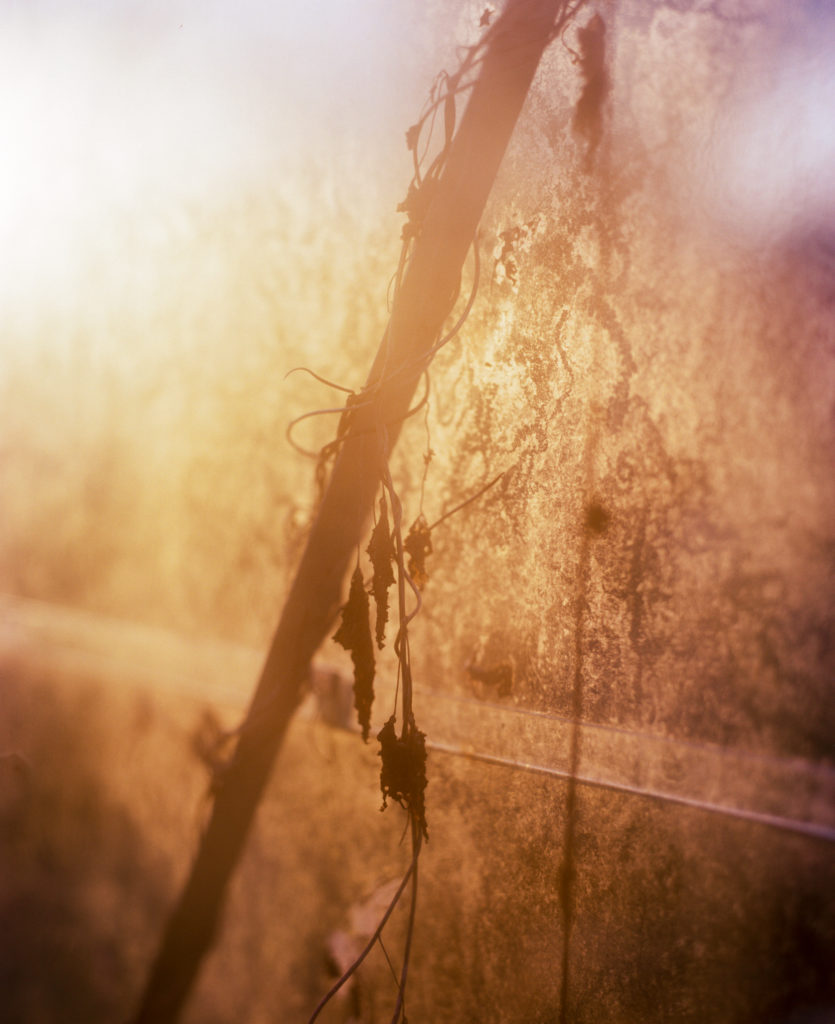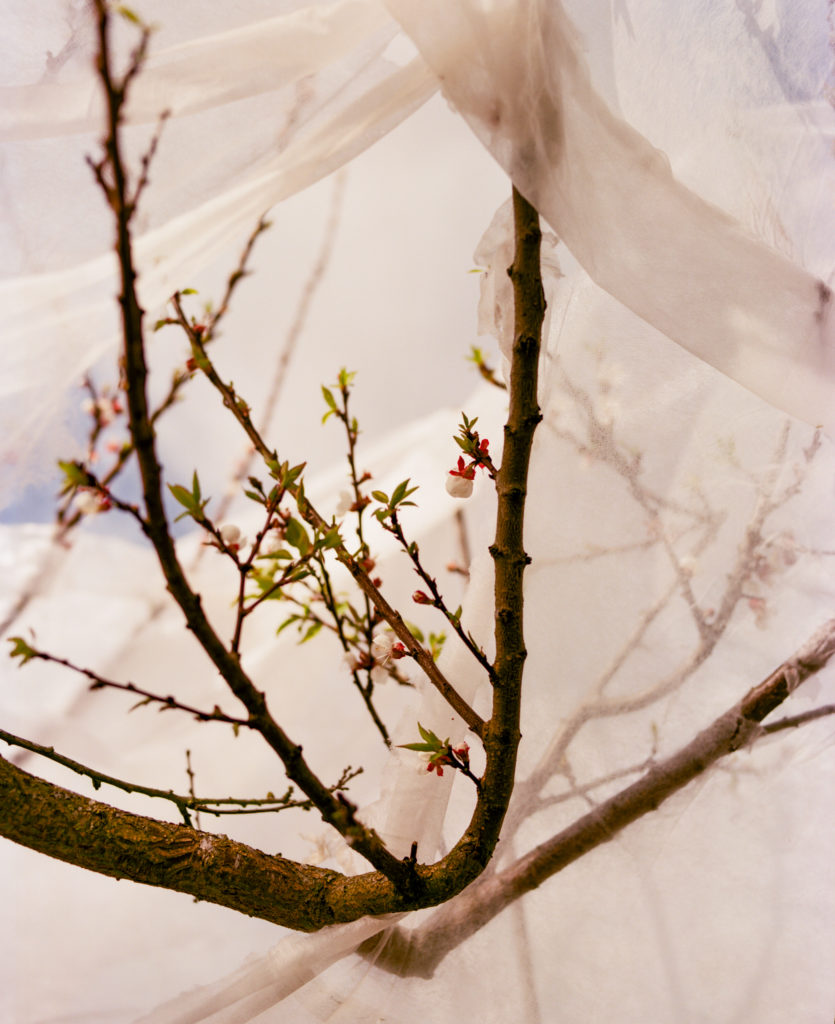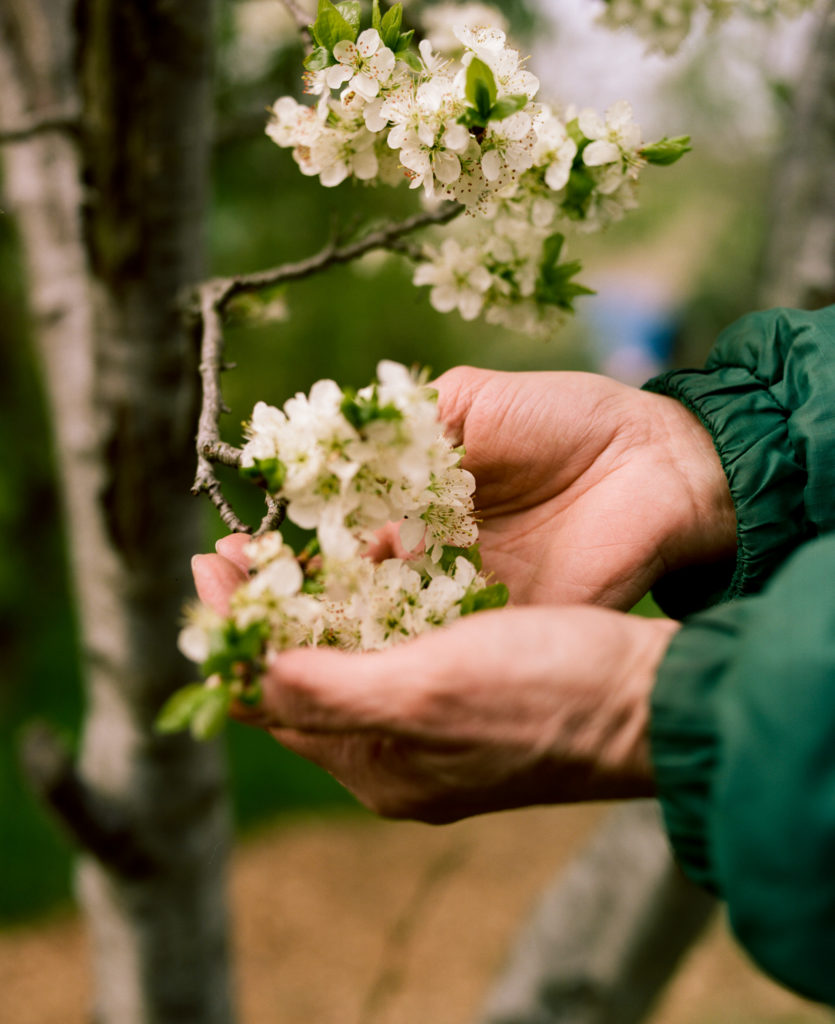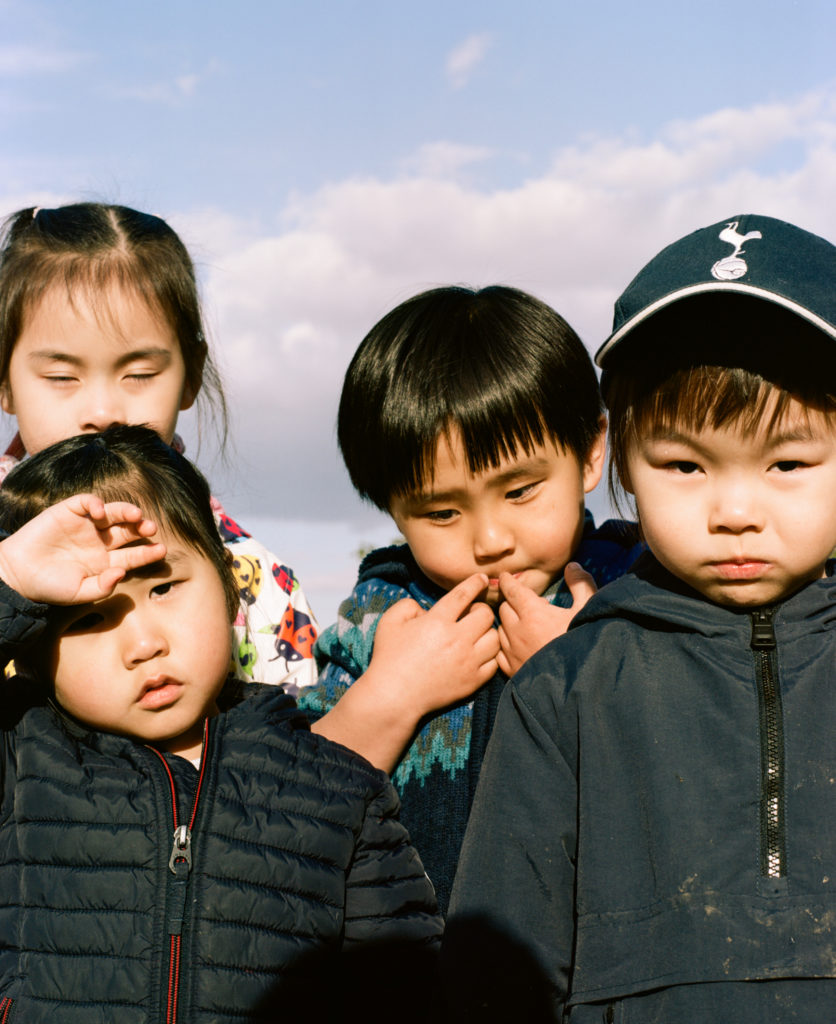Finding calm and community with Alice Martin
This article contains image descriptions in the captions to help those with visual impairments.

Continuing our look at photographers telling stories in the 2020 lockdown, we recently caught up with British photographer Alice Martin whose delicate and sun kissed series We're so lucky to have this place, aren't we? spends time at her nearby allotment which became a calming place and a way to connect with others in her community.
Hey Alice, what drew people to photography. Why is photography the medium for you?
For me, photography is a way of slowing down, taking time to think and see the world and people differently to how they immediately appear. I particularly like forming connections and conveying them, attaching emotion to these images, portraying how I see things. My mind moves very fast due to ADHD and using analogue processes has always kept me excited, I’m having to think of each image deeper, is it worth taking, etc – I think that’s why photography became the thing for me.


Where are you based and how important has your location been in influencing your work?
I’m based in south-west London, but I grew up in Surrey, so I was always close to the city. Being in such a busy place helps me home in on the subtleties within the landscape, when there’s so much going on around me, I find it easier to spot moments of stillness. I’ve always liked meeting and capturing the different types of people that come together in one space, and so being based in a city like London is perfect for this. This is something that influenced me a lot with we’re so lucky to have this place, aren’t we? as the allotment was so multicultural.
During the 2020 lockdown yourself and others found warmth and connection at the nearby allotment. How important was this space during the uncertain times of 2020?
The allotment was an oasis, a sanctuary, it was the one place outside everyone’s homes that we could visit no matter what. It offered a sense of stability, a community to safely socialise with which enormously helped with morale and loneliness, physical activity that was more varied than a daily walk, and a safe and peaceful space to literally just sit and relax.
For many people there they became fonder of the space as most importantly it provided a sense of purpose and a way to escape from the enforced monotony of lockdown. I felt incredibly lucky to have found the allotment and spend time with the community there, it helped keep me sane.


The time spent there has manifested into the project 'we're so lucky to have this place, aren't we?' - tell me more about the stories you wanted to tell here.
I wanted to translate the way the allotment-goers and I saw the space, which was as this paradise. Again, it’s about how the allotment acted as a saviour throughout the lockdowns. The title itself is something that one plot-holder said to me, so I like that I’m directly portraying how the community feel through this. I’m posing the audience the question, almost getting the viewer to see how lucky we are to have such an escape during these lockdowns. Another important aspect I wanted to communicate was that allotments aren’t filled with the cliché middle classed retired man anymore, they actually comprise of a diverse community, whether that be age, gender, race, or anything else.
For those who might not be aware of allotment culture, can you tell me a little bit about what it's like being on an allotment with other green-fingered neighbours?
It’s a super friendly environment. Everyone helps each other, whether that be with advice or giving crops or equipment, swapping seeds, anything really. The community really welcomed me in which was lovely, I got a lot of gifts throughout my time there and people always invited me to their community days and working parties. I also learnt it’s really easy to grow rhubarb.

There is an optimism to your work. Did the allotment help provide this perspective?
For sure, upon entering the allotment it was like a weight being lifted. All the stress of covid and how crowded London can be just disappears there as it’s so spacious and serene. I never realised how much I liked the sound of birdsong, but when you hear that instead of constant traffic it’s beautiful. To have a tranquil space like that makes it an incredibly optimistic place which was only enhanced by the pandemic and its restrictions. I didn’t meet anyone in the three months there that didn’t feel an affinity with the allotment.


What's next for you?
I’m in the early stages of planning my next project which I hope to begin photographing for in the next month or two, so I’m excited to see where that leads me. Along with that it’s just a case of keeping up with any commissions that come through, most of which are in fashion which I also enjoy. Fingers crossed; I’ll eventually be able make a living from photography.
See the full series here